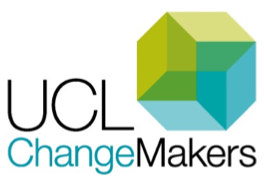Cultural Connections Evaluation
What is the challenge?
Our research and student consultation projects have found that for some international students, the greatest challenge of university is social. Students from different cultural contexts can feel at fault for finding it difficult to socialise with home students, contributing to anxiety and low mood. Home students similarly expressed difficulty in finding opportunities to connect with home students. Social opportunities have been reduced further by the Covid-19 pandemic.
What can be done?
Cultural Connections is a buddy scheme which pairs home and international students, designed by PsychUP for Wellbeing PhD student Lyndsey Li and PsychUP for Wellbeing alumna and associate Gladys Hui.
Does it work?
An evaluation study has been launched alongside the pilot initiative to assess its feasibility and acceptability. This means understanding whether the scheme is viable; what students think of it; and how well it addresses the challenges it aims to solve.
How is it evaluated?
Students who participated in the scheme will be invited to contribute their views and experiences, as will those who chose not to take part, to understand their reasons for this choice. The research is quantitative and qualitative, meaning that both questionnaires and interviews will be used to form a detailed picture of students' opinions and desires for the scheme and its improvement.
What's next?
If the initiative is found to be acceptable to students and feasible to implement safely and effectively, this pilot can be extended to further programmes at UCL and beyond.
Who is involved?
The evaluation is being conducted by Lyndsey Li.
- What is this type of research?
This is a feasibility and acceptability study.
What are they for?
These studies are for assessing how smoothly and affectively an intervention or larger study will run, to gauge its viability on a wider scale. As the name suggests, they are interested in how feasible and acceptable the study or intervention being tested appears. In other words, we want to know if it works and if people like it.
How do they work?
Whether calibrating an intervention (such as a new mode of student support) or a larger study, feasibility and acceptability studies run in miniature. They check whether its components function well: from recruitment and retention to implementation and assessment. A mix of quantitative (e.g. questionnaire) and qualitative (e.g. interview) methods may be used, which, respectively, can evaluate barriers to participation and approval, as well as facilitate more detailed exploration of participants' experiences.
 Close
Close


